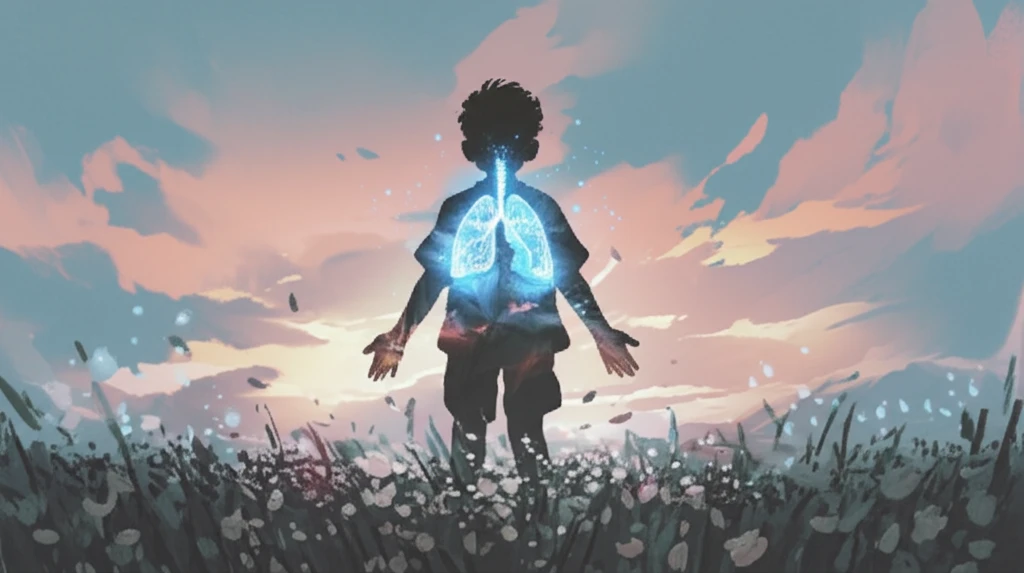
Breathing Easier: Understanding Long-Term Lung Health After Childhood Cancer
"A comprehensive look at the increased risk of pulmonary diseases among childhood cancer survivors and how to safeguard their respiratory health."
Childhood cancer is a battle fought with immense strength and resilience. However, the treatments necessary for survival can sometimes leave lasting effects, particularly on the delicate tissues of the lungs. For many childhood cancer survivors (CCS), the journey doesn't end with remission; it extends into managing potential long-term complications, with pulmonary diseases being a significant concern.
Pulmonary diseases, ranging from pneumonia to more severe conditions like lung fibrosis, can emerge as late effects of cancer treatments such as chemotherapy, radiation, and surgery. These conditions not only impact the quality of life but also increase the risk of mortality among survivors. Understanding the prevalence, risk factors, and preventative strategies is crucial for ensuring the well-being of CCS as they navigate adulthood.
Recent research has shed light on the specific pulmonary risks faced by CCS, emphasizing the need for vigilant monitoring and proactive care. By exploring these findings, we aim to empower survivors and their families with the knowledge to protect and maintain optimal lung health. This article delves into the long-term pulmonary challenges faced by CCS, offering insights into prevention, management, and the importance of continuous care.
Increased Pulmonary Risks in Childhood Cancer Survivors

A comprehensive study published in Pediatric Blood & Cancer highlights the increased risk of pulmonary diseases among Swiss CCS. The study, which included a nationwide cohort of survivors diagnosed between 1976 and 2005, found a significantly higher prevalence of pneumonia and chest wall abnormalities compared to their siblings. This underscores the critical need for ongoing monitoring and specialized care for CCS to mitigate potential long-term effects on lung health.
- Pneumonia: CCS have a higher prevalence of pneumonia compared to their siblings.
- Chest Wall Abnormalities: Thoracic surgery is a significant risk factor for chest wall issues.
- Lung Fibrosis: Also linked to thoracic surgery, indicating potential long-term damage.
- Specific Treatments: Busulfan, a chemotherapy drug, increases pneumonia risk.
Empowering Survivors Through Vigilant Care
The journey of a childhood cancer survivor is marked by resilience and strength, but it also requires ongoing vigilance to address potential long-term health challenges. By understanding the increased risks of pulmonary diseases and the factors that contribute to these risks, survivors, families, and healthcare providers can work together to implement proactive strategies for prevention and management. Regular monitoring, early intervention, and lifestyle adjustments can significantly improve the long-term respiratory health and overall quality of life for childhood cancer survivors. Continued research and awareness are essential to ensure that every survivor can breathe easier and live a full, healthy life.
